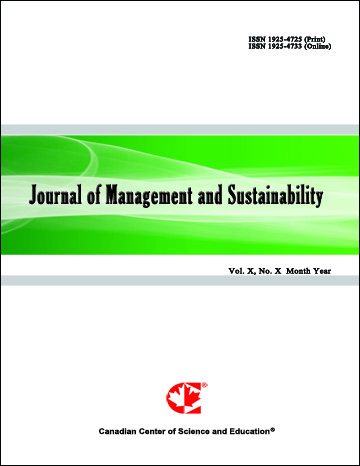Sustainability Indicators: Relevance, Public Policy Support and Challenges
- Andre C. S. Batalhao
- Denilson Teixeira
- Maria de Fatima Martins
- Hans Michael van Bellen
- Adriana Cristina Ferreira Caldana
Abstract
Sustainability is a topic that has gained importance in several fields of knowledge, including the public, private and society spheres, based on the discussions that involve the definition of several public policies. Sustainability Indicators (SI) are metrics that seek to measure the level of sustainability and compile information for better decision-making concerning policies, programs, projects and actions related to sustainability. Demonstrated their relevance to public policies the SI appears as an essential tool for evaluating development goals as a sustainable proposal. In this way, this research aimed to discuss the main challenges and methodological limitations found in the use of SI, emphasizing the main fragilities identified in the literature. In methodological terms, the research has exploratory characteristics, supported by the mixed methods approach using a theoretical-empirical analysis, from the available literature on the subject and the methodologies used and the experience of researchers about the topic addressed. The main results demonstrated that Sustainability Indicators are tools that should be used to define, implement, evaluate and monitor public policies at all levels, considering the potentialities/weaknesses and priorities of each context.
- Full Text:
 PDF
PDF
- DOI:10.5539/jms.v9n2p173
Journal Metrics
Google-based Impact Factor (2021): 1.54
h-index (July 2022): 37
i10-index (July 2022): 147
h5-index (2017-2021): 12
h5-median (2017-2021): 19
Index
- Academic Journals Database
- ANVUR (Italian National Agency for the Evaluation of Universities and Research Institutes)
- CAB Abstracts
- CNKI Scholar
- EconBiz
- Excellence in Research for Australia (ERA)
- GETIT@YALE (Yale University Library)
- Harvard Library
- HeinOnline
- Infotrieve
- JournalTOCs
- LOCKSS
- MIAR
- PKP Open Archives Harvester
- RePEc
- Scilit
- SHERPA/RoMEO
- Stanford Libraries
- UCR Library
Contact
- Evelyn XiaoEditorial Assistant
- jms@ccsenet.org
